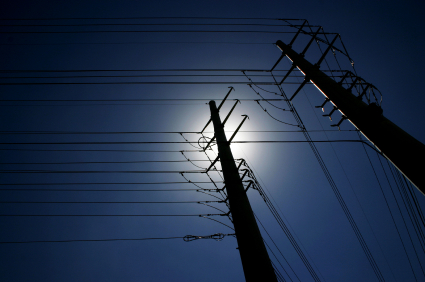
When there is a high demand on the power grid, energy companies begin rolling blackouts as a way to conserve energy so it does not overload the power grid.
In a previous article, a rolling blackout typically occurs due to a weather-related event. However, there are other issues at play that can cause these blackouts to occur. Faulty software and manmade disasters (i.e., cyber-attacks, EMPs) can also cause the grid to go down for a given period of time, as seen in 2003’s grid debacle. This puts stress on the other electrical grids who then compensate for the loss of energy to that existing grid. When these events take place, there is an overwhelming increase of power in homes and commerce to either generate heat, air conditioning, or electricity. When this need overwhelms the grid, the utility company intentionally “shuts off the power to an area in order to reduce the load on an electricity generation and grid. The utility company turns it back on, and then shuts the power off in a different area, with outages in any given area typically lasting 60 to 90 minutes, according to the California Energy Commission. This is the last resort measure of utility companies to avoid an even worse situation — a total power blackout.
With the entire country going through a heatwave, it’s no wonder that the energy levels are out of control. Although I am hoping these blackouts will come to pass, I feel we need to prepare ourselves for this possibility and do what we can to decrease our energy usage, as uncomfortable as that may be. Preparation, after all, provides us with the peace of mind to hope for the best.
Prepare for the Problem
- To be proactive, begin using perishable foods in the freezer and refrigerator to minimize food spoilage. Also, to keep items as cool as possible during rolling black, limit the number of times the refrigerator or freezer door is opened. If you are concerned that the meat may spoil, preserve it beforehand, by either the canning method or the dehydration method.
- Freeze soda bottles filled with water and when the rolling blackouts occur, place the frozen soda bottles in the refrigerator to maintain the optimum temperature.
- Stay indoors and try and keep your body temperature as cool as possible. See the tips below.
- Close window blinds and curtains to keep the heat out.
- If the home is too hot to stay in, try and beat the heat and head to the local pool.
Stay Cool
After exposure to extreme heat for extended periods, the body loses its ability to cool down naturally through sweating and evaporative cooling. Because heat-related deaths are preventable, people need to be aware of who is at greatest risk and what actions can be taken to prevent a heat-related illness or death. The elderly, the very young, and people with mental illness and chronic diseases are at highest risk. Remember to drink lots of water to stay hydrated. If you exhibit any of the symptoms listed below, be sure to get to a cool location, and if symptoms persist, seek medical attention.
- Dizziness
- Severe headache
- Nausea
- Hot, dry skin without sweat
- High pulse rate
- High body temperature
- Unconsciousness
- Fatigue
- Slurred speech or hallucinations
Typically, the duration of the blackouts may only be for an hour or so. During that time, follow these tips to stay cool:
- Wet your hair. Just like you lose the most heat from your head during winter, you can apply the same principle in the heat. Wet all your hair, or just all along the hairline in a pinch. The evaporation of the water will cool your head.
- Take a cool bath. Taking a cool bath will lower your body temperature and relax you at the same time. When the air hits the wet skin, it will create a cooling sensation.
- Wear a bandana. A water-soaked bandanna or cool cloth tied around your neck or placed on your head will help lower your body temperature. Another option is to wear a wet terrycloth headband on your forehead.
- Keep a spritz bottle filled with water in the refrigerator. When you’re feeling hot, mist your face and neck a few times with the cold water for instant relief. If you have a battery-operated fan, you can use this to cool off further. As you mist and fan yourself, the water is evaporated on your skin and cools you off instantly.
- Stay in the lowest part of your home. Downstairs is the coolest part of the home. If you have a multiple story home, limit your time upstairs.
Learn From the Experience
If we can use these brief interruptions from our modern-day conveniences as a rehearsal for short and long-term emergencies, then we can use it as learning experience towards being better prepared for hot weather during emergencies. As uncomfortable as this energy conservation method may be, using the above-stated tips and staying as healthy as possible during the blackouts will make this a short-lived minor inconvenience.
This article was originally published at Ready Nutrition™ on August 5th, 2011






